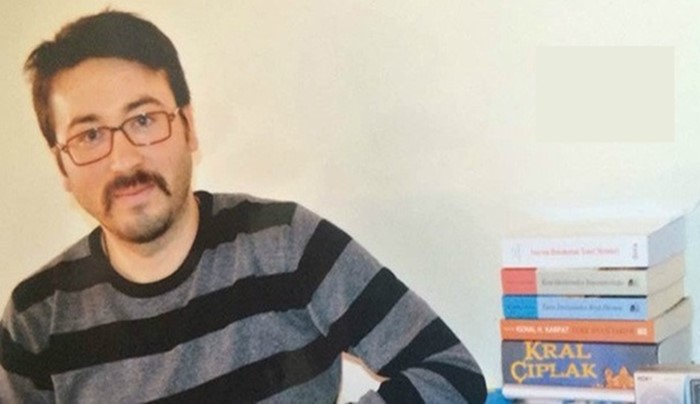Hüseyin Korkmaz, a former Turkish deputy police commissioner who played a key role in exposing corruption within the inner circle of then-prime minister and current President Recep Tayyip Erdoğan, has died of cancer at the age of 38 in the United States, where he had lived in exile since 2016, the Kronos news website reported.
During his time on the Turkish police force, Korkmaz worked on corruption probes that later resulted in police raids on December 17, 2013, which uncovered a sprawling network of bribery involving Erdoğan’s government, cabinet ministers and their families.
The probes implicated high-ranking officials, including Erdoğan’s children, in schemes to launder money and evade US sanctions on Iran. Korkmaz, along with his team, collected key evidence that later became central to US legal proceedings.
Korkmaz was arrested in 2014 during a government crackdown on police officers and prosecutors associated with the corruption probes. After spending 17 months in prison, he was released in February 2016 and fled to the United States, fearing further prosecution. His testimony in a New York court during a 2017 trial concerning the evasion of sanctions imposed on Iran provided explosive details about Erdoğan’s direct involvement in the corruption scheme, describing the Turkish president as the “No. 1” target of the investigation.
Korkmaz came to be known by many by his iconic statement, “If we were afraid of thieves, we wouldn’t have become police officers,” uttered during his arrest in 2014.
2013 graft probes
The December 2013 anti-corruption raids represented a critical turning point in Turkish politics. Led by Korkmaz and other senior police officials, the probes uncovered a network involving high-profile figures, including Erdoğan’s family members, four cabinet ministers and executives at Turkey’s state-owned Halkbank. The investigation began with allegations of bribery and smuggling orchestrated by Iranian-Turkish gold trader Reza Zarrab to bypass US sanctions on Iran, but it quickly expanded to reveal systemic corruption at the highest levels of government.
On December 17, 2013 police raided the homes and offices of key suspects, seizing millions of dollars in cash hidden in shoeboxes. Wiretapped phone conversations implicated Erdogan’s close associates, including his son Bilal, in directing and facilitating the illicit transactions. The revelations sent shockwaves through Turkey, prompting the resignation of the four ministers and sparking mass protests.
However, Erdoğan’s government responded by framing the investigation as a coup attempt orchestrated by the Gülen movement, a faith-based group inspired by the late Turkish cleric Fethullah Gülen. Erdogan dismissed the allegations as baseless and accused prosecutors and police officers involved in the probe of being part of a “parallel state” working to undermine his rule.
Crackdown and exile
Korkmaz’s arrest in 2014 marked the beginning of a sweeping purge of law enforcement officers and members of the judiciary linked to the corruption probes. Over 700 police chiefs and dozens of prosecutors were dismissed or reassigned. Many, like Korkmaz, faced criminal charges of attempting to overthrow the government and membership in a terrorist organization.
After his release in 2016, Korkmaz fled Turkey, fearing re-arrest. He eventually settled in the United States, where he continued to face threats from the Turkish government. Ankara issued an extradition request for Korkmaz in 2018, accusing him of leaking evidence from the corruption investigation to US authorities.
Testimony in the US trial
In 2017 Zarrab struck a plea deal in the sanctions evasion case before a New York federal court. Zarrab was the star witness in the trial where he, Mehmet Hakan Atilla, an executive at Turkey’s state-owned Halkbank, and seven other people, including Turkey’s former economy minister and two additional Halkbank executives, were charged with engaging in transactions worth hundreds of millions of dollars for Iran’s government and Iranian entities from 2010 to 2015 in a scheme to evade US sanctions.
Zarrab provided testimony incriminating Erdoğan and his government.
In December 2017 Korkmaz also testified in the trial as a key witness. Korkmaz’s testimony corroborated Zarrab’s claims that Erdoğan personally authorized the involvement of Turkish banks in laundering billions of dollars in Iranian oil revenue.
Testimony ends for today with a question from Berman.
Judge: How old are you?
Korkmaz: Thirty, your honor.Wow.
— Adam Klasfeld (@KlasfeldReports) December 11, 2017
Korkmaz detailed how the corruption probe uncovered evidence of bribes paid to Turkish officials, including former economy minister Mehmet Zafer Çağlayan and Halkbank executives. His testimony also provided insight into the systemic nature of corruption in Turkey, implicating Erdoğan as the central figure overseeing the scheme.
Korkmaz’s decision to testify in the US came at great personal cost. Following his court appearance, Turkish authorities issued detention warrants for six of his family members, including his mother, father, wife and siblings. These measures underscored the lengths to which Erdoğan’s government would go to silence dissent and intimidate whistleblowers.
Korkmaz battled cancer in his final years. His death has been met with tributes from human rights advocates and exiled Turkish dissidents, who view his life as a testament to courage in the face of tyranny.


